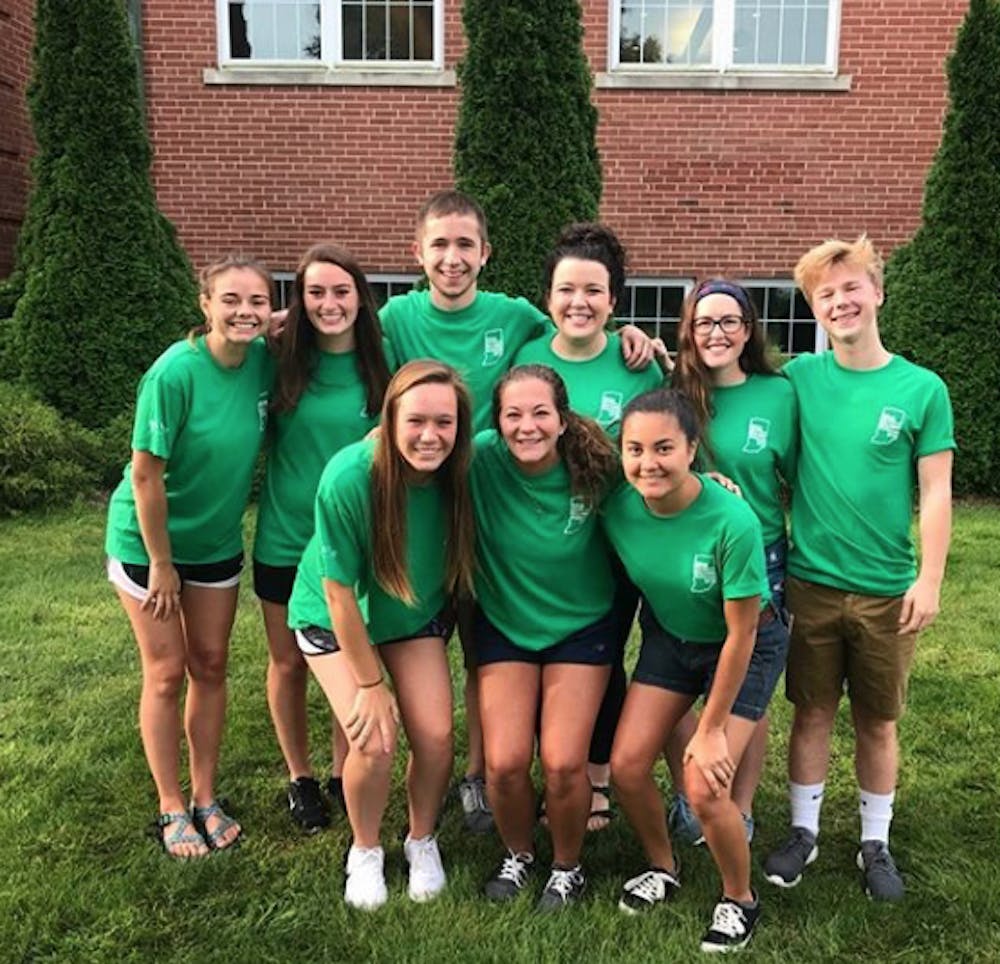By The Echo Editorial Board
The Echo Editorial Board consists of Co-Editor in Chief Chrysa Keenon, Co-Editor in Chief Gabby Carlson, Opinions Editor Drew Shriner, Features Editor Grace Hooley, News Co-Editor Rayce Patterson and News Co-Editor Holly Gaskill.
The changes made to the former Foundations of the Christian Liberal Arts (IAS 110) and First Year Experience (IAS 101) programs are acting as a full pilot to what leaders hope becomes a strong freshman program.
Shawnda Freer, assistant professor and director of First Year Experience, has been hopeful for the program's longevity since learning about it years ago.
"I'm very excited about it," Freer said. "This is my 14th year at Taylor, so even in the first couple of years that I worked here, thinking through the possibilities, and talking to Doctor Cosgrove about it, it's been something I've been thinking about for a long time."
In the new model, O-Group leaders have transitioned into being Preceptors, creating lesson plans on the class's four different book materials for discussion in their smaller Precept groups.
According to Freer, the model they used for training week wasn't drastically different from what they did before the merge.
"Honestly, the training wasn't that different," Freer said. "We've been training them to be TAs for the 101 class. The difference really is in that it's a full semester instead of a half semester. So, they're going to have to do a full semester's work of lesson planning. What was different was the content. We had to help them understand the full vision of the course."
The merge of the two classes brings Foundations professors, Jeff Cramer, Kevin Diller, Scott Moeschberger and new to the program Carol Sisson, stepping in in Matt DeLong's departure.
Because of the significance of the change, Cramer was hesitant at first, but he believes the important thing is students really understanding what the liberal arts mean.
"I hope it increases student understanding of what the liberal arts is all about, how we do it uniquely at Taylor, and excites them for the rest of their time here," Cramer said.
With each Preceptor now being a student, they are charged with a peer leadership role that Freer hopes facilitates friendship and trust between leader and group member.
The design of the course is overwhelmingly supported by the literature on peer learning, according to Cramer, and the peer leadership aspect is his favorite part of the merger.
Senior preceptor Michelle Nathan was an O-Group leader last year and returned this year and feels confident about the changes.
"It definitely is a weird transition to be an O-Group leader and then be called a Preceptor," Nathan said. "But it's good. I love the opportunity it has to discuss the foundations of the Christian liberal arts more in depth. For example, we now get to engage more with questions about our core beliefs as a community, which I love."
The groups stay small, keeping the personal nature they have always inhibited. While this quality is important, it may provide a challenge in the future.
Currently, there are 72 current Preceptors, including eight cabinet members. If enrollment continues on an upward slope, the number of Preceptors must increase as well. But, with the new element of this being a paid position and the feedback the course has received in the first week alone, Freer does not foresee this as a large issue.
The program will go a full semester and will be evaluated in the spring to see whether it will continue, and Freer is optimistic about the merge becoming permanent.
"Everybody's been very supportive and positive," Freer said. "I've talked to two groups today and both groups said it's going really well,"
The editorial board is optimistic about the merge of these two programs. The ultimate goal of higher education is to have solid, recognized programs. We feel this program has a holistic view of the Christian liberal arts and is valuable to the formation of freshmen in their first semester of college.
The opinions expressed in Our View columns reflect the views of The Echo Editorial Board, and not necessarily those of Taylor University.





